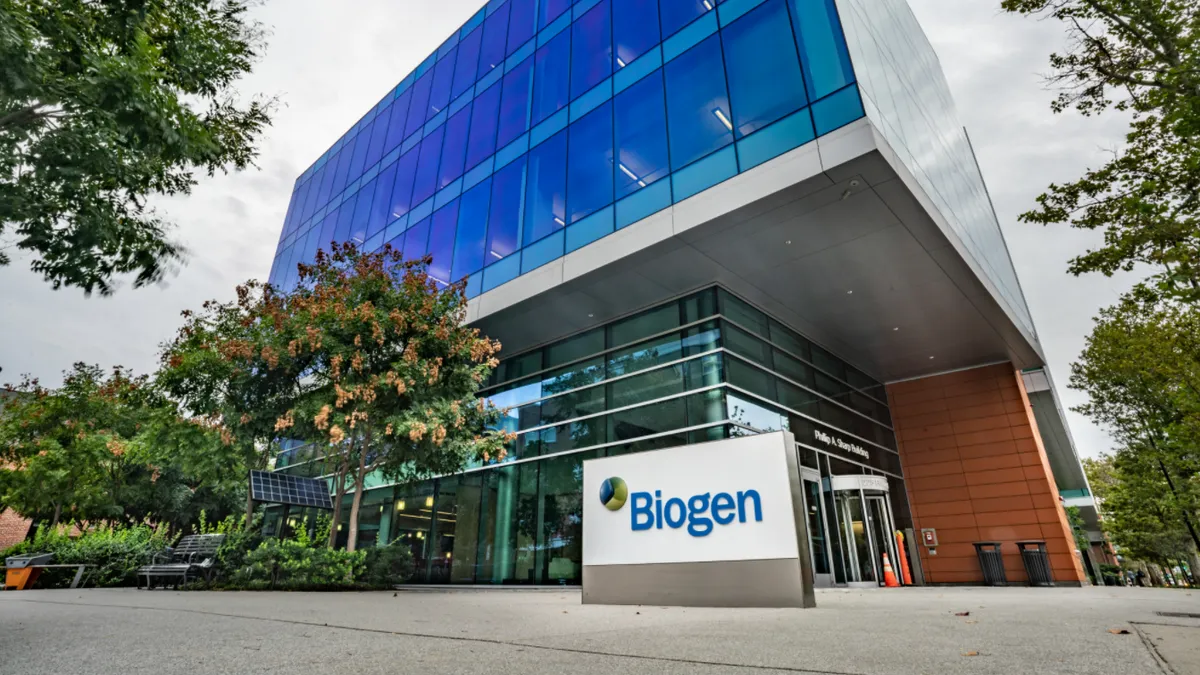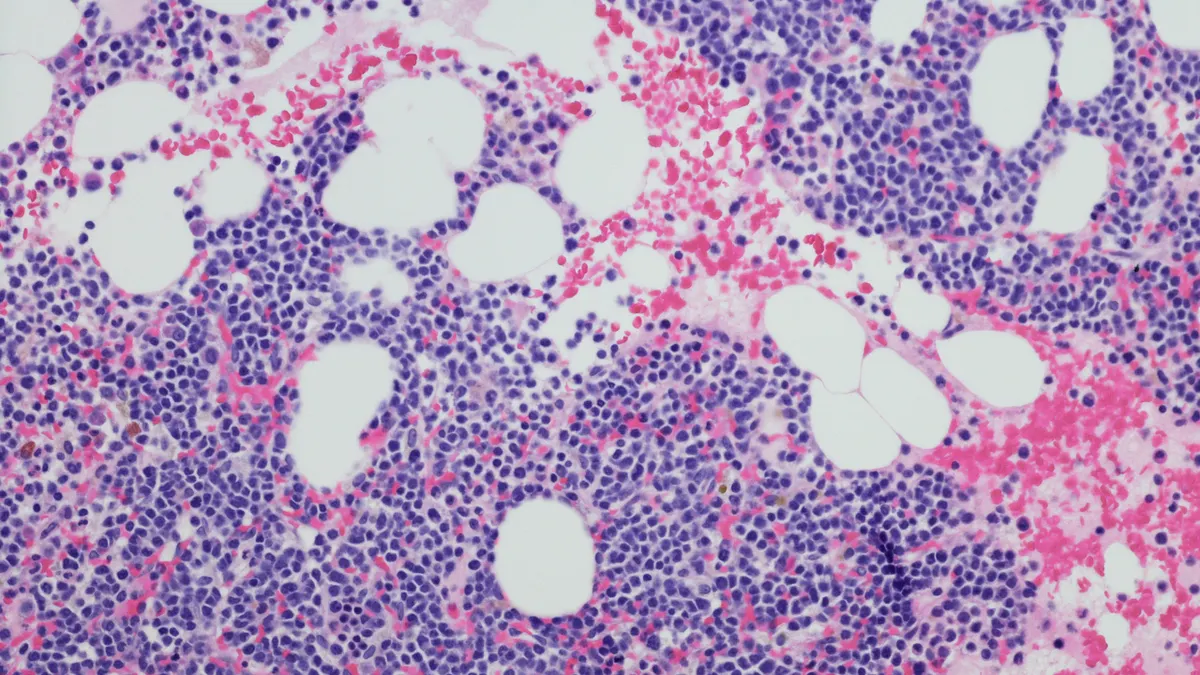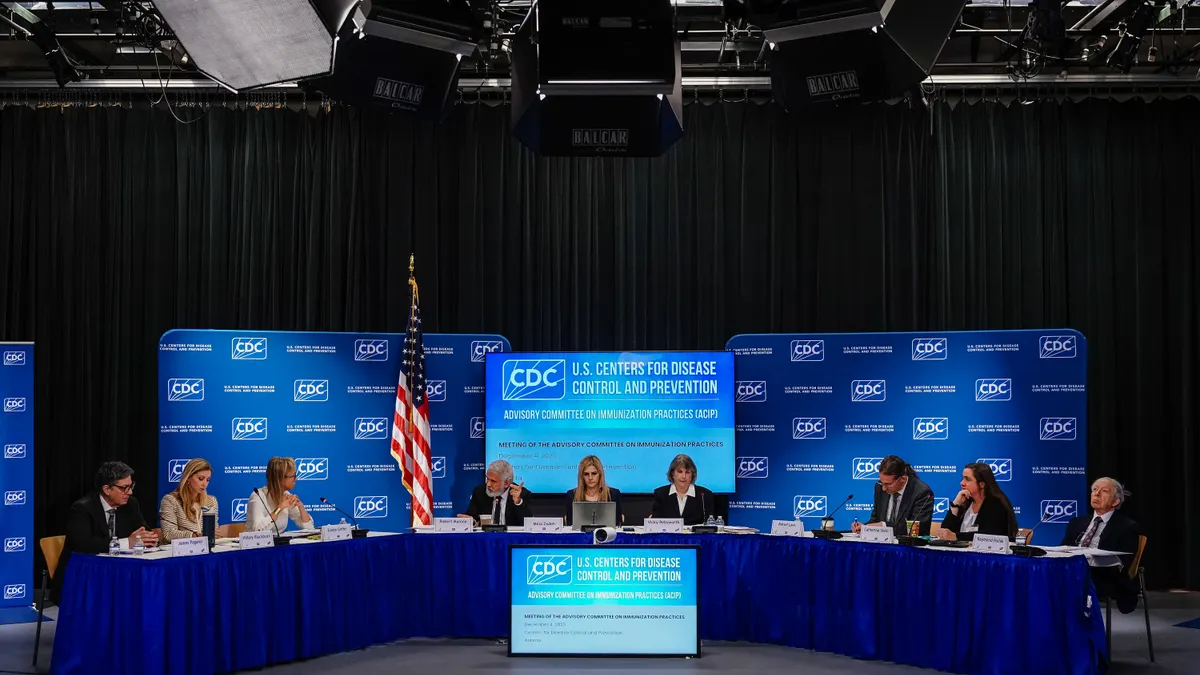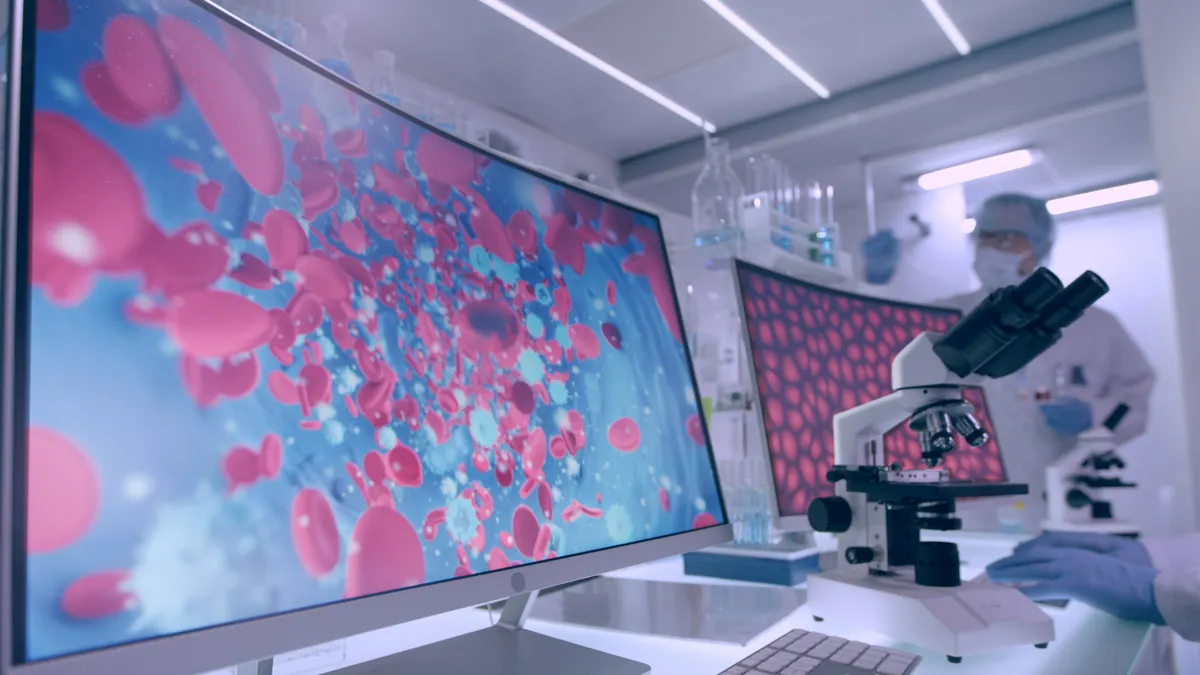After a slow start, the launch of Biogen’s prized drug for Alzheimer’s disease is picking up, which has given company leadership more confidence that it can both drive growth and compete with a rival medicine from Eli Lilly.
Sales of Biogen’s drug, Leqembi, were $40 million between April and June, more than double the total seen across the first three months of this year. On a Thursday call with reporters, CEO Chris Viehbacher said north of 5,000 people in the U.S. are taking Leqembi, though it’s “hard to know” the exact number because of how the drug is administered. Patient registries have also become “confusing” and less useful sources of information, according to Viehbacher.
“We’re pretty convinced Leqembi is on the right path now,” he said.
Biogen’s development partner Eisai, which is spearheading Leqembi’s launch, had predicted revenue from the drug would reach about $360 million between April and the end of next March. Biogen executives are hesitant to second those estimates, noting that near-term growth will depend on whether large, integrated healthcare systems adopt Leqembi.
Yet, if recent orders from these systems are any indication, Leqembi is on track to becoming a big product in the long-term, Viehbacher said.
Eisai and Biogen have also been trying to secure approval in Europe, though that goal ran into a major obstacle last week, as a key group of regulators voted against Leqembi entering the market there. Although some on Wall Street expect more than 70% of Leqembi sales to come from the U.S., the setback in Europe is still "very disappointing," according to Jefferies analyst Michael Yee.
Until recently, Leqembi and Aduhelm — another drug developed by Eisai and Biogen — were the only Alzheimer’s therapies of their kind cleared in the U.S. They work by removing from the brain toxic clumps of a protein called amyloid beta. But that list lengthened last month, with the approval of Lilly’s anti-amyloid medicine Kisunla.
Analysts have been debating which drug, Leqembi or Kisunla, will take the lead in a rapidly evolving market. Both come as intravenous infusions, and are specifically for Alzheimer’s patients in the early stages of the disease. There are key differences, however.
Data suggest Leqembi may be safer, while Kisunla is seen as more convenient since it’s administered every four weeks instead of every two. And because of the tests Lilly ran, patients can stop taking Kisunla once their amyloid levels drop below a certain threshold.
Biogen and Eisai believe a newer form of Leqembi they’ve been developing, an under-the-skin shot, will help lift prescriptions and sales. The companies have already begun submitting that form for approval. Additionally, a large, late-stage clinical trial is evaluating Leqembi in people who have elevated amyloid levels but aren’t yet showing Alzheimer’s symptoms.
“Only Leqembi is really going to have the evidence base that covers that whole spectrum, from the early stage right through to maintenance,” Viehbacher said. Kisunla “is not going to be able to play into that.”
“Short term, we're going to see competition, certainly,” he added. “But I would also say that one of the biggest challenges to this launch has been building up the healthcare infrastructure. And so in a lot of ways, we actually welcome Lilly’s entry into the market, because [the] extra education that will happen with healthcare professionals will grow the market for everyone.”
Biogen investors may not be as confident. Even though the company raised its earnings per share estimates for the year, its stock was down more than 2% Thursday morning.
The new guidance came alongside second quarter earnings, in which Biogen recorded close to $2.5 billion in revenue across its entire business. The total is nearly identical to what Biogen reported for the same three-month period in 2023.
In the past year, the company spent around $8.5 billion on the acquisitions of rare disease drugmaker Reata Pharmaceuticals and immune system specialist Hi-Bio. By the end of June, Biogen still had $1.9 billion worth of cash, cash equivalents and marketable securities.
According to Chief Financial Officer Michael McDonnell, Biogen could spend $8 billion to $10 billion on deals over the next couple of years, with a focus on expanding the mid- to late-stage research pipeline.
“We'll be looking to do more things like HI-Bio,” McDonnell said. “If we could get another Reata at some point, that would meaningfully add to revenue growth ... but we can be patient and disciplined on that. The business is in a much better shape today than where we were 18 months ago.”























